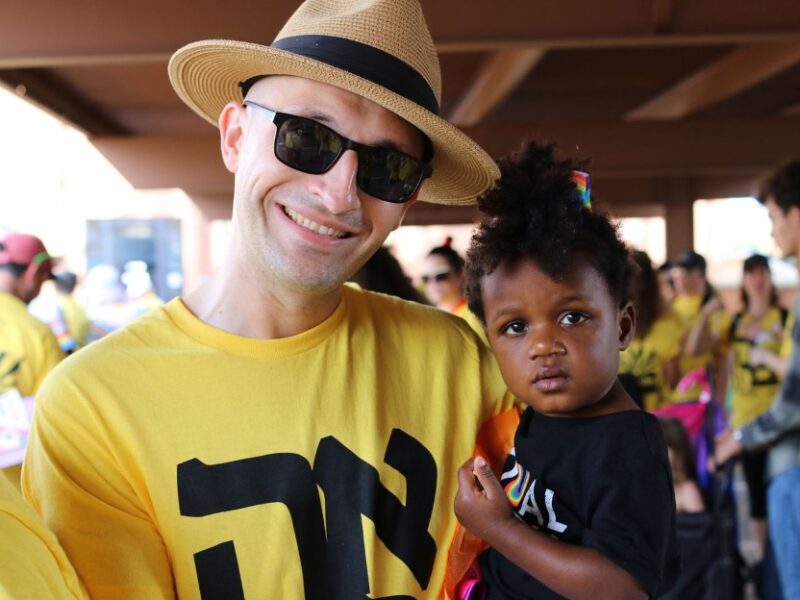With Pesach behind us, our house has remained spotlessly cleaned and organized in the wake of our pre-Pesach cleaning. Right? Of course right! Most of us will drag that word out to sound like riiiiight.
How is it that all our well-intentioned plans to keep the house neat, organized and in order have failed so miserably? Changing a behavior related to a pattern or habit is difficult to achieve and even more difficult to maintain. It’s not usually that you lack motivation to make a change, or that you don’t want it badly enough. It’s that making a change in life and our lifestyle requires thought and planning.
My favorite example that I use in therapy sessions relates to my sunglasses. I wear a prescription pair in our blinding Arizona sun and usually leave them in the car. Most of the time I tossed them on the seat next to me, and sometimes had to dig through the ever-growing pile of Coffee Bean cups to find them, or perform complicated gymnastic routines in an attempt to fish them out from under or behind the seats where they had cleverly hidden themselves.
I decided that I wanted to make a change. I wanted to know where the sunglasses were going to be every time I got into the car. Changing a behavior that has developed out of habit requires planning and forethought. Behavioral changes come in small steps, with planning and a clear assessment of what is keeping you from making a successful change. I decided that the glasses would go into the pocket in the car (which was actually brilliantly made for sunglasses!). Most importantly, I decided that I would put them there every single time I got out of the car. Even if I was only going into a store for a minute, the glasses went into the pocket. I wasn’t perfect. The solution wasn’t perfect. But the problem slowly got better with a daily adherence to a small, manageable change in behavior.
How often are we faced with attending a great workshop, program or class and coming away feeling inspired to be amazing parents, people, spouses, leaders? We are fired up to be more patient, more understanding, more generous, and then within a few weeks we feel disappointed in ourselves and our lack of “follow through.” What does it take for us to establish changes in our lives? And dare I mention the dreaded diet? Each morning saying that today is the day that you will be “perfect” and focused and drink your eight cups of water and exercise, and count the calories, and not eat sugar, and lower the carbs, and, and, and. Does that sound familiar to you? Makes you want to just start tomorrow, right?
As a therapist, I often see this with clients who are inspired to make changes after developing a self-improvement plan. One client continues to walk out the door saying “This is the week I will look for a job!” And yet, week after week she returns with no progress or effort expended. It’s not from lack of motivation or interest. But “looking for a job” is a frighteningly BIG activity or behavior to change. We get bogged down by the enormity of a task, and we just get in our own way. When we attempt to make a major change without the proper steps to make it last, we set ourselves up for failure. So what are some strategies to make change a reality, not an exercise in frustration?
You may want to try the following:
• Choose one piece of a big picture to change. Don’t fall into the trap of trying to fix everything at once.
• Identify the specific steps that are going to be needed to make a change. Don’t just brush with one broad stroke. Be specific to be successful.
• Bring in a support system once the goal is established. Ask a friend to be your cheerleader or guide. Don’t try going it alone.
• Be compassionate with yourself. Part of life is falling down.
Know how to fall and how to recover. The days after Pesach are the days of Sefirah, the counting of the days that led up to Shavuot, when the Jewish people received the Torah on Mount Sinai. Each day the Jewish people took one step further away from the pagan culture of Egypt and one step closer to Sinai and an event that would reshape the world. It took 49 specific, incremental steps for success, not just one giant leap. Take the lessons of the Sefirah to remind yourself that change is possible and go for it – in small achievable pieces.
Dvora Entin, LCSW, is a clinician and program coordinator for Jewish Family & Children’s Service Aleinu. She can be reached at dvora.entin@jfcsaz.org





